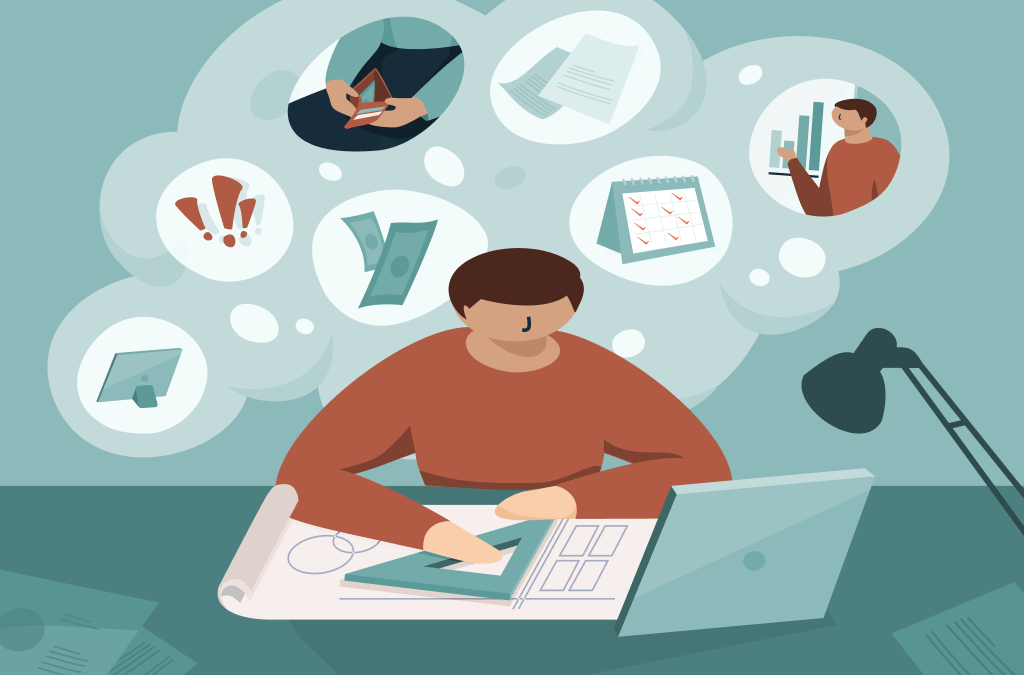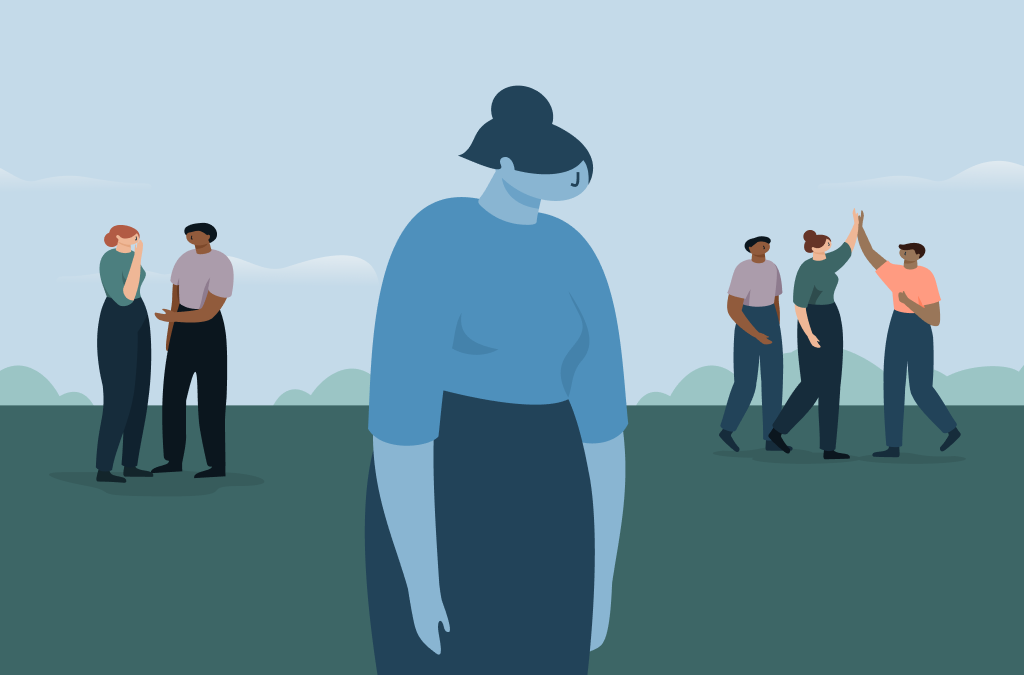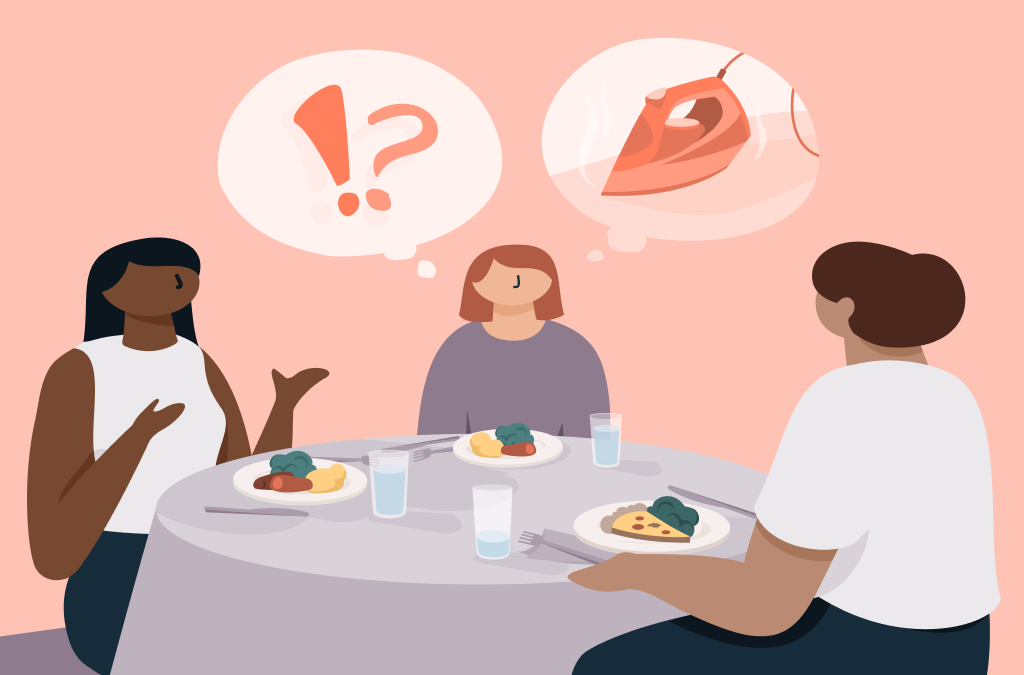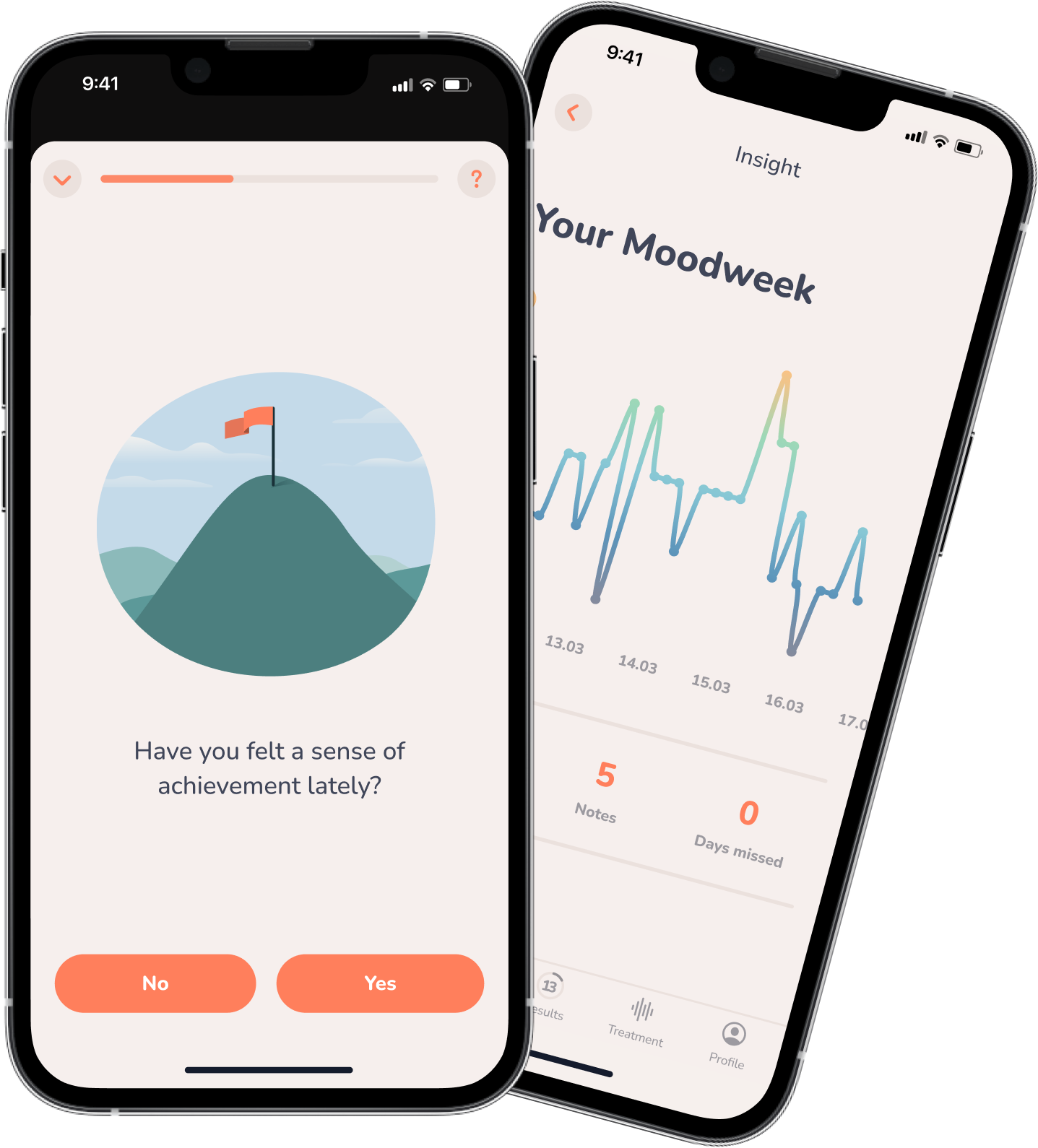Insight
“I’ll Be Strong When You Can’t Be” – Depression In A Relationship
How can you deal with the dark shadow of depression in a relationship? What are the challenges you have to face?

It is normal for a depression to have a strong impact on life. A lot of things are bound to change with the illness. If the person you love suffers from depression, both partners are affected in different ways. Seeing a loved one in pain takes a lot from you. Relatives or partners often feel lost between wanting to be there for the other person and dealing with their own difficulties. In between wanting to help and feeling responsible.
The wild emotional landscape of sorrow, self-doubt, and anger
Countless emotions arise when a relationship is confronted with depression. At first, inevitably there will be concern and uncertainty. Is something wrong with my partner? Why is she not laughing as much as before? Why is he tired more often, irritable, and restless? Are there problems at work, or worse: is it my fault? Am I doing something wrong? Is that why my partner seems less interested in me, more reserved, or doesn’t feel like having sex? The fact that the partner often continues to interact normally with others offers additional reasons for self-doubt. For example, everything might seem as always when they speak on the telephone or friends are over. This friendly, joyful facade is only dropped in private situations.
In addition to insecurity, there simply is grief. Mourning for something that has passed, for a time when everything was ok. If a partner suffers from depression, that often means having lost something across many parts of life. That can just be the lost ease of shared joy or making decisions together.
Sadness and anger lie very close to each other, they even blend. Anger about canceled plans or not a single compliment given is common. “I don’t even know you like this, what is going on?“ is a typical impulse deriving from such frustration. The hidden meaning behind this anger is the desire to regain balance in the relationship: “I don’t want it to be this way, I reject it. Make things change!“
Feeling guilty is a direct result of this. It can be easier to blame oneself than the complex causes of depression. Sentences will then start with “Had I only…“, they range from thinking you are responsible for your partner’s depression (at least in part), not caring enough for the partner, to the feeling that you are not allowed to experience joy or beauty yourself.
And where there is guilt, there is also shame. Much of our identity and self-esteem is derived from our close social environment. If our partner suffers from a depression, not only his or her identity is affected – our own is too. For example, if the partner repeatedly cancels meetings, withdraws or behaves differently among friends, partners may have to explain themselves as well. Such behavior can feel embarrassing and have a negative effect on our self-worth.
Is there a path through this world of shadows?
It is not easy to accompany a partner that is going through a depression. Many relatives and partners receive confusing and mixed messages from the affected person: “Help me but leave me alone!“ In fact, wanting to escape from the situation and wanting to help at the same time is common. All this is perfectly normal. The one you love is changing and that makes you afraid. But how can you overcome these challenges and draw a map of this world?
Accept – The behavior of your partner may seem rejecting and selfish. It is necessary to have a thick skin. It is tricky to accept the depression for what it is, an illness, while continuing to believe in the relationship. Don’t misunderstand depression as a weakness of character, a matter of education or just the mood – acknowledge it as a complex illness. Gaining this insight is not easy. If you love someone, you have to face your own resistance to accept his or her condition. Therefore, it is helpful to get thoroughly informed about the nature of a depression. You should also let your partner know that it’s ok for them to be the way they currently are.
Be patient – The most difficult tasks are staying in touch with your partner and encouraging him or her, even if they turn away, refuse to accept help and do not show any affection. This includes understanding their behavior as part of the illness and not taking it personally. Acknowledge that your partner is “not able to“ rather than “not willing to“. For someone enduring a depression, it’s important to know that they are not alone in this black hole. It is good to know that someone is there for you if you need them.
Have conversations – even if your partner shuts him-/herself off – It helps to talk openly about the depression, without pressuring or trying to analyze your partner. This is the only way to understand how a depression feels and what your significant other needs in that moment. Questions that appeal to the specific strengths and qualities of the person are better than digging for what might have caused the depression. However, sometimes it is best to simply “just“ listen – be there and say nothing at all.
Avoid giving advice that’s message is “I know what’s best for you“ – When confronted with a problem our brain tends to go for quick solutions. But if we tell a person going through depression how to overcome the illness, we are in danger of playing it down. Even though it might not be intentional, this can promote feeling guilty about shortcomings in your partner.
We usually give this kind of advice to free ourselves from feeling powerless. “Well, now that I’ve given you a tip, it’s your turn again.“ The partner, however, sees the world through the “grey glasses“ of depression. And these are very real for him or her. Saying things such as “Take a few days off and go somewhere“ or “Other people are in a much worse situation, you have everything you need“ are pure poison! Encouraging sentences are much better: “We don’t have to talk about the past or the future right now. Do what you can today. I’m here if you need me.“
Accompany, don’t patronize – The course of a depression can be influenced by the way we interact with our partner. It is of great significance to pay attention: When is support really wanted – and when not? Relieving your partner of all his or her duties can make him or her feel unneeded and useless. And that possibly intensifies depressive symptoms and the sentiment of “failing anyway“. It is more effective to boost daily routines like getting up together, having meals for two, or taking regular walks.
Self-care – Being with a person that is suffering from depression means constantly walking a fine line between the needs of the “we“ and the needs of the “I“. If we love someone, we have an urge to take responsibility for their pain and healing. It is important to remember that depression is the illness of your partner and not your own. If compassion gets out of hand, you turn into a helpless helper. Therefore, it is crucial to remember your “self“ and your boundaries. Accompanying a depression is very demanding. And it is only possible to bring up the strength if you are feeling well yourself. Meet friends, treat yourself from time to time. And live your own life. That way you can create a healthy distance and recharge your batteries.
Encourage getting help – The more we know about the nature of depression, the better we can understand our partner. But that also includes being mindful. What are the limits of what is feasible? And, very important: At which point is professional help called for? Depression is always a reason to seek support. Especially if the partner mentions suicidal thoughts. In many cases, psychotherapy can be the anchor. Not only can therapy help with the treatment of depression, it can also help save the relationship. But more often than not the person affected will not be able to find the energy to see a therapist. They might feel it’s unnecessary, blame themselves for their condition, or not even realize the condition they’re in. Then it is important to encourage those affected to seek help.

People-Pleasing — When the Fear of Rejection Becomes a Trap
Are you a person who places a high value on kindness, consideration and helpfulness? Or … maybe you tend toward what’s called “people-pleasing”?

Psychological Needs in the Workplace: How to Meet Them
Deadlines, conflicts, pressure to perform—many people grapple with stressors at work. The extent to which these weigh on someone depends in large part on whether psychological needs are being met at work.

High-Functioning Depression: The Hidden Suffering
When people think of depression, usually intense sadness, low energy, social withdrawal, difficulty getting out of bed, and managing daily life come to mind. But this is not always the case.

Obsessive-Compulsive Disorder: When Thoughts and Actions Become Torture
In this article, we explore what characterizes such thoughts and behaviors as well as how they can be treated.



